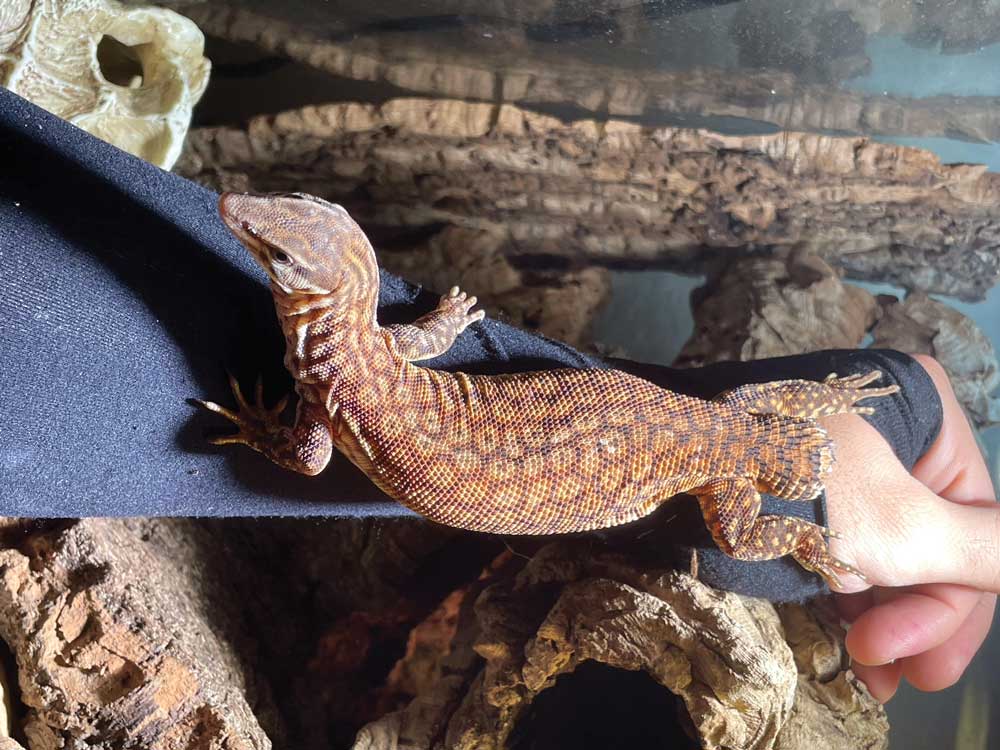Veterinarians are wonderful sources of knowledge for keepers. They can guide owners and breeders on proper biosecurity and quarantine practices, especially for larger collections.
What is the role veterinarians play in the reptile hobby? Some would say only when your pet is sick or there is a concern that needs addressing. There is unfortunately a small minority of the hobby that would probably say no role at all. In reality, veterinarians are an important component of reptile keeping. They are just as important as the breeders and reptile stores where you buy your animals and hard goods.
First, veterinarians are wonderful sources of knowledge for keepers. They can guide owners and breeders on proper biosecurity and quarantine practices, especially for larger collections. These practices, while seemingly tedious, help prevent the spread of disease such as cryptosporidium and nidovirus. Vets are also great sources for husbandry. Many owners I see come with questions about the care for their animals or have an issue that is related to husbandry. I relish discussing proper husbandry practices with them. Reptile vets stay current with the best husbandry practices, and they are among those on the front line of providing scientifically-based husbandry recommendations. At several of the exotic animal medicine conferences I attended, there are always lectures detailing studies to establish husbandry requirements.
Additionally, many veterinary clinics sell the supplements that are recommended for a healthy reptile. The clinic I work for carries a gut loading diet to increase the level of calcium and vitamins in insects for insectivorous reptiles.
Veterinarians allow for owners to consistently check on their animals. I always recommend for reptiles that we check on them once a year- and for some animals twice a year depending on their condition. This is a great way to review husbandry parameters, perform annual bloodwork, and check the poop. These tests can help detect disease before they become serious issues. Additionally, vets advocate for animal welfare, especially as government agencies attempt to restrict reptile keeping. I actively support USARK and USARK Florida in their fights against the Lacey Act Amendments and attempts to create safe lists. I spoke out against the Holy Thursday Massacre, and attend as many FWC meetings as I feasibly can. As medical professionals whose priority is to minimize animal suffering, veterinarians bring a unique perspective to these debates that not only protects the human-reptile bond but also prioritizes the needs of the animals.
As much as veterinarians do, we cannot do our job unless we work with keepers. When a reptile is under your care–whether you intend to trade it, sell it, or keep it for its life–it is a living thing dependent on you. It is your responsibility to bring it to a medical professional to ensure it is healthy, doubly so if it is sick. This may be costly. This may be expensive. However, as advocates for the species we work with, selling high quality, healthy animals is paramount for not only setting future keepers up for success but also allowing others to establish healthy human-reptile bonds.
Eric Los Kamp, DVM is an exotic animal and wildlife veterinarian at Winter Park Veterinary Hospital in Winter Park, Florida who has aspirations to board certify in reptile/amphibian medicine. In addition to being a member of the Association of Reptile and Amphibian Veterinarians (ARAV), he is an avid ackie monitor keeper.



